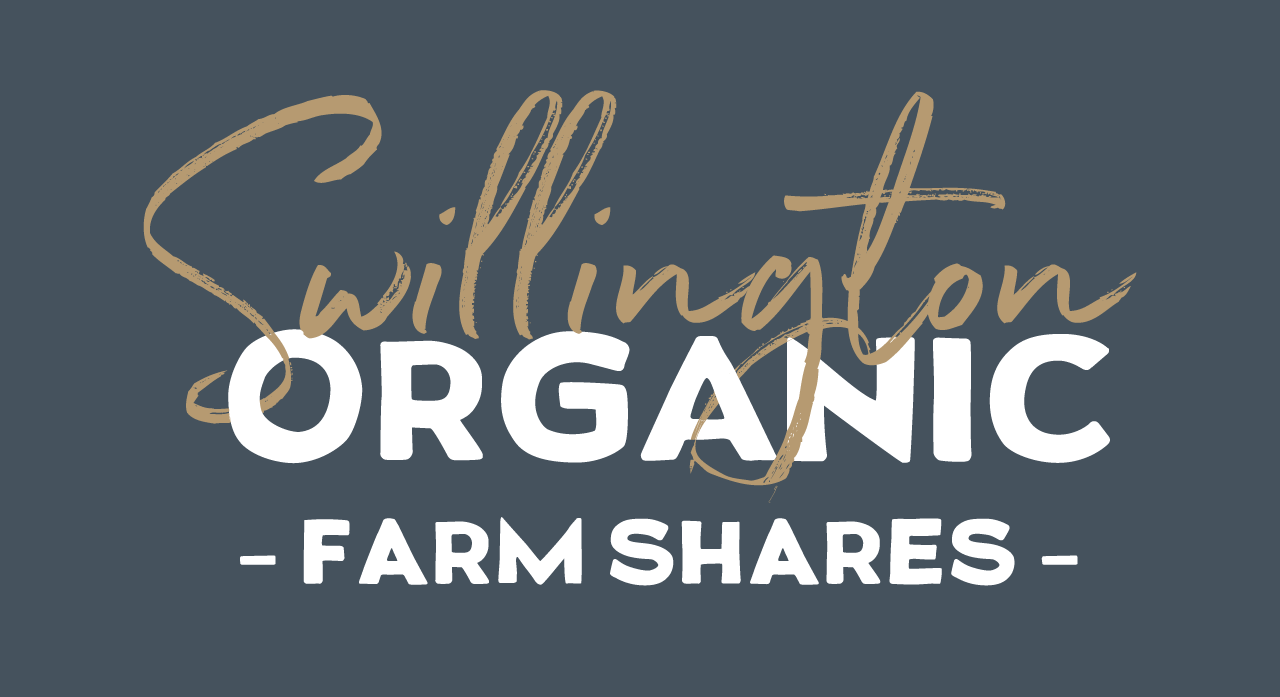What we’re doing to tackle plastic waste – right now
[vc_row][vc_column][vc_column_text]As an organic farm, limiting our impact on the environment has always been a priority and we’re constantly looking for greener, cleaner ways of doing things. We witness first-hand the rich biodiversity of our little corner of Yorkshire and this is something we are determined to protect.You’ve probably seen lots in the news recently about the devastating effect plastic is wreaking on our environment – particularly its oceans – and we've been thinking about what we can do to combat this.We support plans to prohibit the sale of single-use plastics as early as next year. This is fantastic news and we welcome any legislation that can reduce our country’s reliance on non-recyclable plastics.At Swillington Farm, we understand that the environment is also a major concern of our customers and it’s something we want to tackle right now.With Earth Day just around the corner (22nd April), we thought we’d give you a brief update to demonstrate our commitment to continually lowering our environmental impact. It’s a continuous journey, however, here are a few ways we are taking action today…..[/vc_column_text][vc_column_text]
Watch the video to discover the changes we're making.
[/vc_column_text][vc_raw_html]JTNDaWZyYW1lJTIwd2lkdGglM0QlMjI1NjAlMjIlMjBoZWlnaHQlM0QlMjIzMTUlMjIlMjBzcmMlM0QlMjJodHRwcyUzQSUyRiUyRnd3dy55b3V0dWJlLmNvbSUyRmVtYmVkJTJGaGp4bHpzVlNRc1UlM0ZyZWwlM0QwJTI2YW1wJTNCc2hvd2luZm8lM0QwJTIyJTIwZnJhbWVib3JkZXIlM0QlMjIwJTIyJTIwYWxsb3clM0QlMjJhdXRvcGxheSUzQiUyMGVuY3J5cHRlZC1tZWRpYSUyMiUyMGFsbG93ZnVsbHNjcmVlbiUzRSUzQyUyRmlmcmFtZSUzRQ==[/vc_raw_html][vc_column_text]
100% recyclable, disposable Meat Box packaging
Over the next few months, we’ll be updating our meat boxes to only use an insulated packaging system made from 100% paper. We’ll be one of the first businesses in the UK to switch to the system.It’s been designed to keep products safely chilled between our farm and your fridge. Even if you're not home and the box waits on the doorstep it will still be perfectly chilled so no risk of food going to waste.The boxes and insulation liners will be made from 100% recycled fibres that can simply be placed in your paper recycling bin or returned to us to resuse.We are also moving to a recyclable cool pack that can be cut at the corner, drained of the food safe gel and placed in your plastic recycling bin.Vacuum pouch reduction We are currently working with York Bio Renewables Centre to investigate alternatives to our plastic vacuum packs.Our vacuum pack pouches are the only single-use packaging items we will be using. Due to our commitment to high product quality and food safety standards, there are currently no better alternatives to the plastic pouch.However, we have switched to a pouch that uses 33% less plastic and are on the lookout for an even better solution; we’ll keep you updated on our progress.
No Plastic Farm Shop
We are committed to making our farm shop a ‘No Plastic Zone.’ This will start with the introduction of compostable and recyclable food trays and film, plus multiple use Fairtrade cotton shopping bags.
Minimal Waste
This has been a principle close to our hearts for a long time. Making sure we use every part of the animal is not only better for the environment, but it is also the least wasteful and most ethical.We don't waste any meat that is fit for human consumption – we use the whole carcass. Any leftover meat is frozen and added to our value packs and bones and offal are used for stock. Any consumables we don’t use, we’ll be donating to the Real Junk Food Project for their stocks.As well as limiting our food waste, we’re minimising waste elsewhere too. Our non-food waste is recycled wherever possible and anything that can't be goes to a local waste to energy plant; nothing is landfilled. Why Choose Organic?There are almost 300 pesticides routinely used in non-organic farming, many of which end up in the food chain, cause soil degradation and are very harmful to wildlife. In 2015, over 17,800 tonnes of pesticides were used on non-organic British farms to kill weeds, insects and control crop diseases. There is growing scientific evidence that these pesticides play a key role in the decline of honeybees, butterflies and other pollinators.Got a question? Get in touch with our team for a chat. Alternatively, keep up to date with everything new on the farm by following us on Twitter, Facebook and Instagram. [/vc_column_text][/vc_column][/vc_row][vc_row][vc_column][/vc_column][/vc_row]
